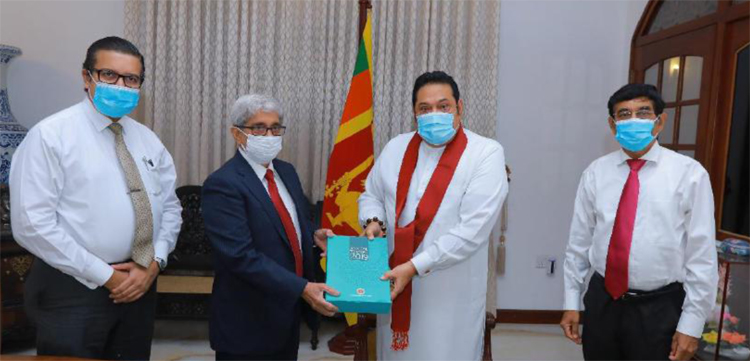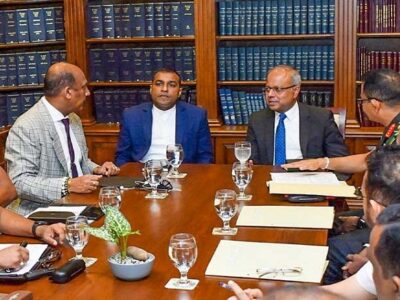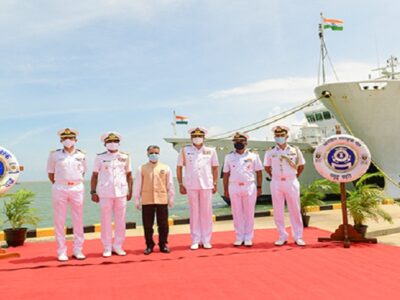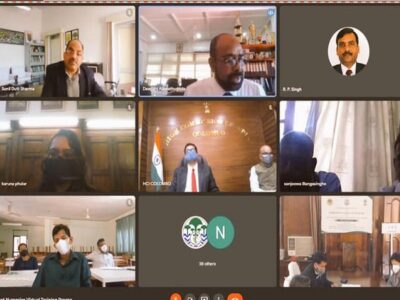(COLOMBO, LANKAPUVATH) –The Annual Report of the Monetary Board of the Central Bank of Sri Lanka released today, noted that the economy continued to suffer last year.
In terms of Section 35 of the Monetary Law Act No. 58 of 1949, the seventieth Annual Report of the Monetary Board of the Central Bank of Sri Lanka was presented to Prime Minister and Minister of Finance Mahinda Rajapaksa by Deshamanya Professor W.D.Lakshman, the Governor of the Central Bank of Sri Lanka Yesterday(28).
The report noted that during the year 2019, Sri Lanka’s dismal performance continued in terms of real economic growth, although macroeconomic stabilisation measures helped correct the external sector imbalances to some extent, while inflation pressures remained muted on average.
The report said that the Easter Sunday attacks had a severe impact on the tourism sector, and their adverse spillover effects were felt across the economy, worsening the sluggish growth of the economy and further dampening business confidence.
Policy measures aimed at reducing pressures on the balance of payments (BOP) and the exchange rate continued in 2019, which together with steps taken to revive the economy, contributed to notable slippages in the fiscal sector.
Subdued demand conditions allowed the continuation of low inflation during the year, although extreme weather conditions and resultant disruptions to domestic food supplies caused some volatility in consumer prices.
Growth of credit to the private sector decelerated sharply, driven by subdued economic activity and weak business confidence, affecting the performance of the financial sector.
Considering the need to support economic activity amidst muted inflation, well anchored inflation expectations and diminished pressures in the external sector, the Central Bank adopted an accommodative monetary policy stance, and took steps to expedite the transmission of monetary policy measures to the economy through regulatory action aimed at reducing market interest rates.




